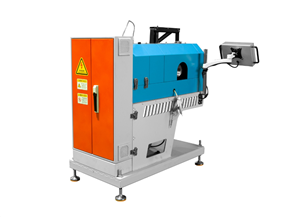2025: Recycled Plastics Industry – Has the Golden Turning Point Arrived?(3)
Expansion of Application Fields
Today, recycled plastics are active in various industrial fields and have become a key force driving sustainable development. Their application scope is broad, covering multiple critical industries such as packaging, construction, and automobiles, and in each field, they demonstrate unique advantages and enormous development potential.
In the packaging industry, recycled plastics are widely used—their traces can be found everywhere, from daily plastic bottles and bags to various types of packaging boxes. As consumers’ environmental awareness continues to rise, the demand for sustainable packaging materials is growing increasingly. Relying on advantages such as environmental friendliness and low cost, recycled plastics have become the first choice for many enterprises. According to relevant data, the global sales volume of recycled plastics for food packaging reached 3.35 billion US dollars in 2024 and is expected to climb to 5.079 billion US dollars by 2031, with a Compound Annual Growth Rate (CAGR) of 6.1% (2025–2031). This growth trend fully demonstrates the broad market prospects of recycled plastics in the packaging field.
In the construction industry, recycled plastics also play an important role. They are widely used in manufacturing construction panels, pipes, thermal insulation materials, and more—this not only reduces construction costs but also enhances the environmental performance of building materials. Take recycled plastic construction panels as an example: they have advantages such as light weight, high strength, and corrosion resistance, which can effectively reduce the self-weight of buildings and extend their service life. Furthermore, the application of recycled plastic thermal insulation materials can significantly improve the thermal insulation performance of buildings, reduce energy consumption, and contribute to the achievement of energy conservation and emission reduction goals in the construction industry. Relevant data shows that the global market size of recycled plastic building materials continued to grow from 2019 to 2024.
In the automotive industry, the application of recycled plastics has gradually become a trend. They are widely used in components ranging from automotive interior parts such as seats and instrument panels to body cover parts such as bumpers and door panels. This not only reduces the weight of automobiles and lowers energy consumption but also reduces environmental pollution. As the automotive industry pays increasing attention to environmental protection and sustainable development, the application prospects of recycled plastics in the automotive field will become even broader. It is predicted that by 2030, the global output value of recycled plastics for automobiles is expected to reach 1.686 billion US dollars, with a CAGR of 29.2% during the period 2024–2030. Europe, as a developed region in the automotive industry, leads in the application of recycled plastics, accounting for approximately 75% of the market share; the Chinese and North American markets are also developing rapidly, accounting for 15% and 5% of the market share respectively.
Challenges and Opportunities Coexist
The development path of the recycled plastics industry is not smooth sailing; instead, it is intertwined with challenges and opportunities. Only by clearly recognizing these challenges and opportunities can the industry seek breakthroughs in difficulties and seize opportunities amid changes.
The incomplete recycling system is a major problem facing the recycled plastics industry. Currently, China’s domestic waste plastic recycling system is still imperfect: recycling channels are scattered, and there is a lack of unified standards and norms. This leads to low waste plastic recycling efficiency and unstable supply. In some rural areas, due to insufficient coverage of recycling outlets, a large amount of waste plastics are randomly discarded or incinerated, which not only causes a waste of resources but also severely pollutes the environment. Moreover, the information asymmetry in the recycling link makes it difficult for recycling enterprises to achieve efficient connection with plastic product manufacturers, further restricting the development of the industry.
Technological bottlenecks also limit the development of the recycled plastics industry to a certain extent. The performance and quality of some recycled plastic products still cannot reach the level of virgin plastics, which restricts their application scope. In the field of high-end electronic equipment, due to the extremely high performance requirements for materials, recycled plastics are currently difficult to meet their needs. Furthermore, although some advanced recycling technologies and equipment—such as chemical recycling technology and intelligent sorting equipment—have significant advantages in improving the quality of recycled plastics and production efficiency, they are difficult to promote and apply widely in the industry due to high costs.
Despite facing many challenges, the recycled plastics industry is also ushering in unprecedented development opportunities. Strong policy support has injected powerful impetus into the industry’s development. The introduction of a series of policies, such as the 14th Five-Year Plan for Plastic Pollution Control Action and the Guiding Opinions on Coordinating Energy Conservation, Carbon Reduction and Recycling Utilization to Accelerate the Renewal and Transformation of Products and Equipment in Key Fields, has clearly defined recycling targets, driven the plastic industry to make significant strides toward green development, and provided a favorable development environment and more development opportunities for recycled plastics enterprises.
The growth in market demand has also brought broad development space for the recycled plastics industry. As global environmental awareness continues to improve, the demand for green and sustainable materials from consumers and enterprises is growing. Relying on its environmental protection attributes, recycled plastics are increasingly widely used in fields such as packaging, textiles, and automobiles. In the packaging industry, more and more enterprises have begun to use recycled plastics to make packaging materials to meet consumers’ demand for environmentally friendly products; in the automotive industry, recycled plastics are used to manufacture components such as car interiors and bumpers, which not only reduces the weight of automobiles and lowers energy consumption but also reduces environmental pollution.




